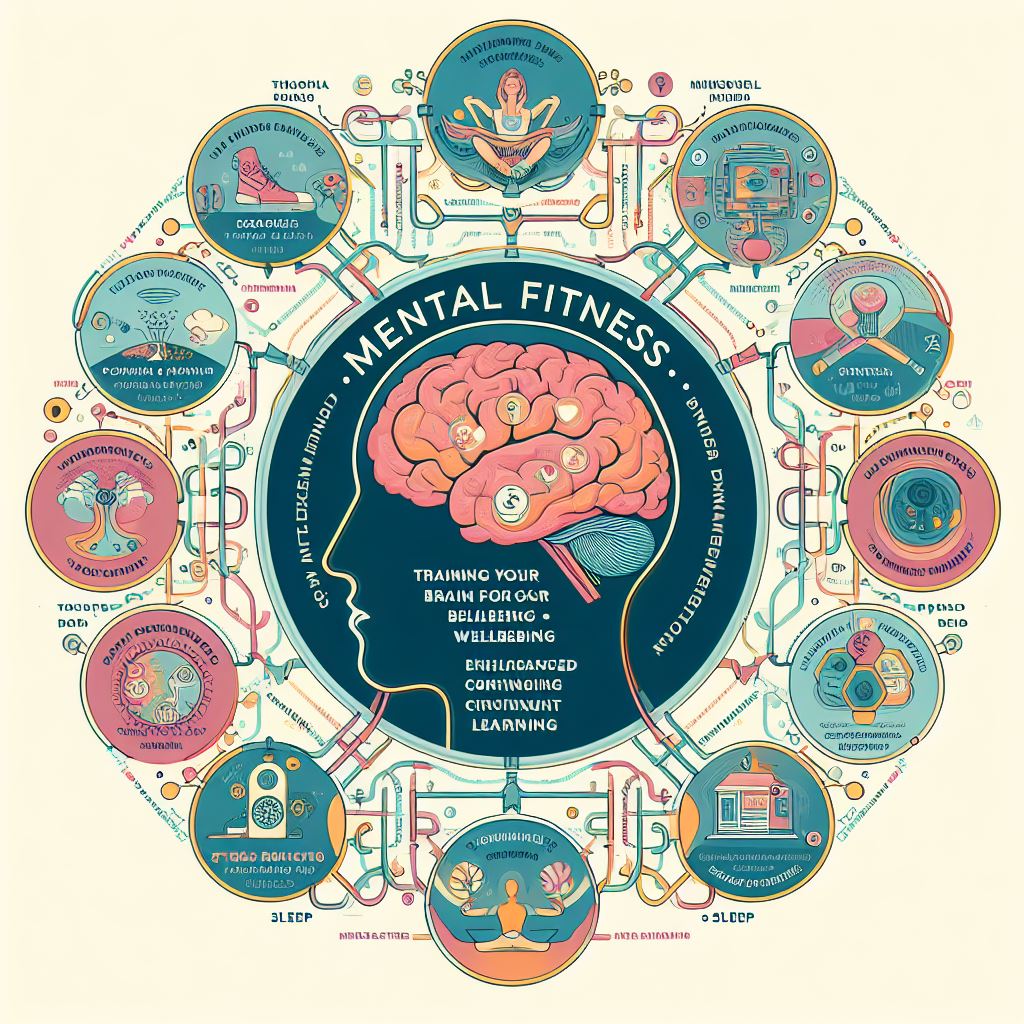
Mental Fitness: Training Your Brain for Wellbeing
The mind is like a muscle: if you don't give it a regular workout, it loses tone.
With the rise in understanding of physical fitness and its significance in promoting overall health, another dimension, often overshadowed, is coming into the limelight – mental fitness.
What is Mental Fitness?
Mental fitness refers to a state of psychological wellbeing, wherein the individual has an agile brain, capable of managing stresses, challenges, and the everyday rigors of life effectively. It's not just about avoiding mental health problems; it's about building resilience, enhancing cognitive capacities, and fostering an overall positive outlook on life.
The Definition and Importance of Mental Fitness
Contrary to popular belief, mental fitness isn’t solely about emotional health. It encompasses the agility and strength of our brains, leading to improved focus, creativity, and resilience against stress and anxiety. As Dr. Elkhonon Goldberg states in his book "The SharpBrains Guide to Brain Fitness," mental dexterity plays a crucial role in our quality of life, personal relationships, and even career success.
Techniques and Exercises for Training Your Brain
A fit mind is cultivated, not inherent. Here are some researched brain training techniques for mental health:
- Cognitive Exercises: Just as we exercise our bodies, our brain benefits from workouts. Puzzles, logic games, and even some video games have shown to be effective.
- Mindfulness and Meditation: A practice that centers the mind, improves focus, and cultivates a sense of presence.
- Continuous Learning: Picking up new skills or languages, reading, and attending workshops stimulate the brain.
- Physical Exercise: Believe it or not, physical activity boosts cognitive function and mental wellbeing.
- Adequate Sleep: Essential for cognitive functions like memory and problem-solving.
Brain Training's Scientific Backing
Neurological research indicates that the brain's neuroplasticity – its ability to reorganize itself by forming new neural connections – can be enhanced through specific exercises and activities. Studies from the National Institute of Mental Health on cognitive training further validate the efficacy of these practices, drawing a direct link between brain exercises and improved mental agility.
The Comprehensive Impact of Mental Fitness
Mental fitness, when consistently practiced, fosters:
- Enhanced Memory and Focus: Regular cognitive exercises have shown marked improvement in these areas.
- Stress Reduction: Mental training helps in better stress management, leading to fewer physical health issues like hypertension.
- Improved Decision Making: A well-conditioned brain can process information faster and make decisions more efficiently.
- Elevated Mood: Activities like mindfulness and meditation release feel-good hormones, combatting feelings of depression and anxiety.
Case Study: Consider Jane, a 35-year-old accountant. Feeling overwhelmed with stress, she turned to mental fitness exercises, particularly mindfulness meditation and cognitive games. Within a year, not only did her concentration levels surge, but she also reported feeling calmer and more in control of her emotions.
Mental Fitness vs. Traditional Meditation
While both focus on mental wellbeing, traditional meditation primarily centers on achieving a state of calm and mindfulness, whereas mental fitness encompasses a broader spectrum, aiming for overall cognitive enhancement and resilience.
Expert Opinions
"Training the mind is just as vital as training the body. Just as we see results from consistent physical exercise, consistent mental exercise yields increased cognitive abilities," asserts a renowned cognitive neuroscientist during an interview.
Navigating Misconceptions
One common misconception is that mental fitness is only for those with cognitive decline or mental health issues. In reality, everyone, regardless of age or cognitive state, benefits from enhancing their mental strength.
Final Thoughts
Mental fitness, with its myriad benefits, plays an undeniable role in our overall wellbeing. It's an investment in oneself, ensuring not just longevity, but the quality of life as we age. Whether you're an individual seeking self-improvement, a therapist, or a life coach, understanding and incorporating mental fitness into daily routines is the need of the hour.
References:
- "The SharpBrains Guide to Brain Fitness" by Alvaro Fernandez and Dr. Elkhonon Goldberg.
- Studies from the National Institute of Mental Health on cognitive training.
- Research papers from journals like "Neurology", "Brain Research", and "The Journal of Mental Health and Wellbeing".
- TED Talks related to mental fitness and brain training.
- Interviews with experts in the field of cognitive neuroscience and mental health.





